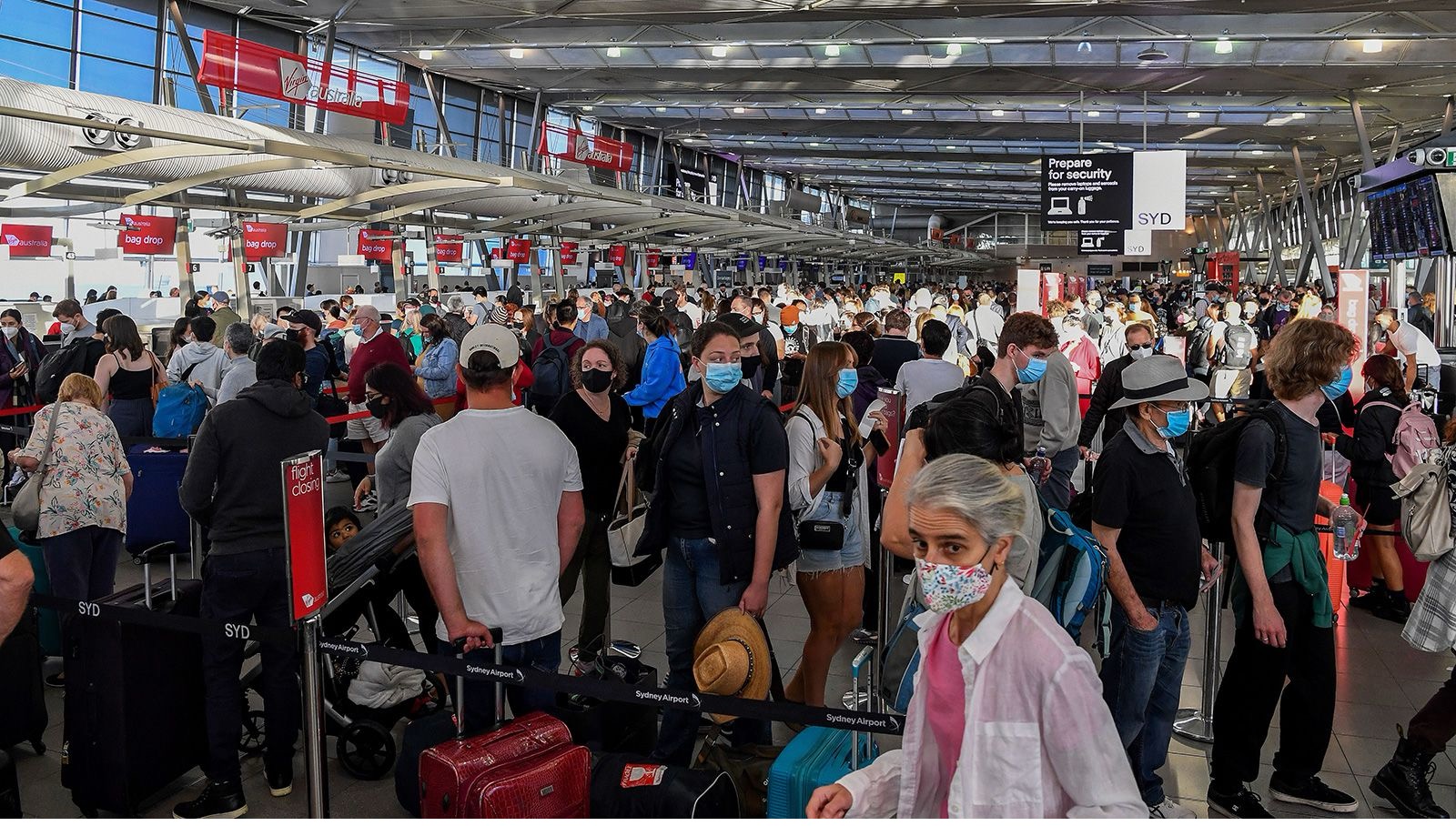Turning Travel Chaos into Control: The Art of Travel Disruption Management
Discover how travel assistance services turn chaos into control with 24/7 help, rebooking, and emergency support.

Flight cancellations, missed connections, a family illness back home— travel chaos can unravel even the best-planned trip in minutes.
That’s where Travel Assistance services step in. Think of them as your 24/7 problem-solving team: clinicians who can speak with local doctors, coordinators who can rebook flights and hotels, staff who can replace lost documents, arrange emergency medical evacuation, or simply translate in a tense moment. Unlike insurance, which reimburses you later, assistance teams work in real time to fix what’s broken—right now.
In this guide, we’ll show you how Travel Assistance services turn disruption into a manageable checklist. You’ll learn what’s covered, how assistance differs from insurance, which passenger rights matter during delays, and why disruptions are rising worldwide. Whether you travel occasionally or every week, these tactics put control back in your hands—so a bad day on the road doesn’t ruin your trip.
What Travel Assistance Services Really Cover
Travel Assistance services begin with a 24/7 hotline staffed by coordinators and medical personnel who open a case, verify your plan, and take action. Expect medical referrals, ongoing medical monitoring, and guarantees of payment so a hospital admits you without delay. If local care is inadequate, teams can coordinate evacuation or repatriation once a physician deems it medically necessary. This is operational help, not a reimbursement form.
A practical example: You slip and fracture your wrist in Quito. The hotline finds an English-speaking orthopedist, shares your clinical notes, and confirms whether the clinic accepts a guarantee of payment. If imaging suggests a complex fracture, the clinical team monitors your case and plans a fit-to-fly route home with appropriate seating or a medical escort. Travel Assistance services shine here because they combine logistics with clinical oversight—closing the gap that insurance alone can’t.
Beyond Medicine: Disruption Help Most Travelers Miss
Many travelers assume assistance is only for medical issues. In reality, Travel Assistance services routinely handle rebooking flights and hotels, coordinating missed connections, tracking lost baggage, arranging interpretation, and helping with lost passport replacement or emergency cash transfers. That’s the difference between sleeping on an airport floor and having a confirmed room and shuttle—arranged while you’re still in the queue.
Imagine landing after a delay and missing the last feeder flight. You call the hotline: they secure a seat on the next available departure, hold a nearby hotel room, and push ground transport details to your phone. These “non-medical” saves are where Travel Assistance services often deliver the greatest perceived value.
Assistance vs. Insurance: What’s the Difference?
Travel Assistance services provide real-time help. Travel insurance offers financial protection and reimbursement. Assistance coordinators book and arrange; insurers adjudicate and pay covered claims later. Many plans bundle both, but providers are careful to label assistance as non-insurance services—important for expectations and claims. Credit cards, employers, and universities may include assistance access even when you haven’t purchased a separate policy.
Before you buy anything, check what your card or employer already offers. Many institutions include 24/7 medical, security, and travel assistance, which can be primary for official or educational trips.
Know Your Rights During Disruptions
Even with Travel Assistance services, your legal rights matter. In the U.S., the Department of Transportation dashboards summarize each airline’s commitments for controllable delays—meal vouchers, hotel stays, rebooking on partner airlines, and ground transportation for overnight delays. Assistance teams can leverage those commitments when negotiating with carriers.
In Europe, EU261 establishes compensation and care during delays or cancellations. As of mid-2025, member states are adjusting payout amounts and time thresholds, but your right to care—meals, lodging, and communication—remains protected. A good assistance provider tracks these evolving policies for you.
Why Disruptions Are Increasing (and What That Means for You)
It’s not your imagination—global operations remain strained. Industry reports cite lingering supply-chain constraints, slower parts turnaround, and older aircraft staying in service longer—all correlating with more frequent cancellations and delays. Add to that weather volatility, labor actions, and fast-changing entry rules.
Assistance teams maintain travel intelligence feeds and regulatory updates, turning chaos into a decision tree: reroute, wait, or pivot the trip. Travel Assistance services are no longer a luxury; they’re essential for modern resilience.
A Simple Playbook: From Chaos to Control in 15 Minutes
- Call your 24/7 hotline and open a case. Share your itinerary, passport details, and current gate or hotel location.
- Triage: handle medical concerns first, then safety, then itinerary.
- Authorize the team to coordinate directly with airlines or hotels.
- Leverage passenger rights: have the team reference airline or EU commitments for meals, hotels, or rebooking.
- Confirm deliverables: receive your new flight confirmation, hotel voucher, and transport details.
- Keep receipts for any personal spending for later reimbursement.
Pro tip: assign a “travel buddy” back home who has copies of your ID and travel plan in case your phone battery dies. It shortens verification time and speeds up document replacement.
How to Choose a Provider (and Avoid Fine-Print Friction)
- Network depth & language coverage: Seek multi-lingual teams with global provider networks.
- Response time & performance metrics: Ask for average pickup times and issue resolution data.
- Evacuation triggers: Clarify what medical criteria must be met before evacuation is authorized.
- Transparency: Understand which services are assistance-based and which require claims.
Requesting a pre-trip consult is a simple way to confirm local resources, evacuation pathways, and special coverage terms before departure.
Packing a “Disruption Kit” (Digital + Physical)
- Digital kit: PDF copies of passport, plan details, hotline numbers, airline apps, and offline maps.
- Physical kit: Printed plan card, basic medications, universal adapter, and small local-currency cash.
- Backup storage: Keep encrypted copies in the cloud or with a trusted contact who can act on your behalf.
Prepared travelers resolve problems faster simply because they can prove identity and coverage instantly.
Metrics That Matter: Time to Resolution & Cost Avoidance
Ask your provider about average “time-to-rebook,” “hospital admission time with guarantee of payment,” and “evacuation coordination time.” These metrics reveal service quality more than marketing language. Providers that track and share them are usually the ones who perform best in real emergencies.
Pro Tips Frequent Travelers Swear By
- Call your assistance line before departure to confirm your coverage and share pre-existing medical details.
- Register with your embassy for alerts and faster help during crises.
- Carry a concise medical summary—conditions, medications, allergies—in your phone wallet for quick reference.
Quick Takeaways
- Travel Assistance services offer real-time solutions, not reimbursements.
- Use them for rebooking, translations, and medical coordination.
- Know your rights under DOT and EU261 policies.
- Global disruptions are rising, plan ahead.
- Pack a disruption kit and assign a travel buddy.
Conclusion
You can’t eliminate travel turbulence—but you can control your response. Travel Assistance services give you a 24/7 support system that rebooks, coordinates medical care, and helps when documents go missing or language becomes a barrier. Pair that with your understanding of passenger rights and you shift from panic to plan.
When chaos hits, make one call, follow your plan, and let the professionals handle the rest. That’s the art of Travel Disruption Management—and the everyday power of Travel Assistance services.
FAQs
Can assistance staff rebook flights for me?
Yes, they can liaise with airlines to rebook or reroute you using each carrier’s passenger service commitments.
When is evacuation approved?
Only when deemed medically necessary and safe by a physician, often involving escort coordination and route planning.
What if I lose my passport late at night?
Call your assistance hotline. They’ll guide you through reporting, consular scheduling, and replacement steps.
Many networks offer interpreters or translation apps for smoother communication.lar audits, clear guidelines, and thorough training of third-party agents can maintain quality standards




